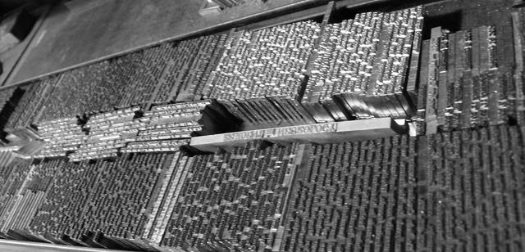
June 5, 2017; Columbia Journalism Review
For more than a century, local journalism thrived in direct correlation with local civic engagement. But the twenty-first century brought a disruption that has taken a multitude of forms. Most local nonprofit news sites have struggled along with meager funding in a business environment that took constant experimentation and focus, but some outliers were blessed with local “angels” who funded them relatively generously. Both models of the way forward have produced a measure of success, but the smaller, less well-capitalized ones have exhibited the kind of passion and ingenuity over time that makes them fertile ground for further diverse experimentation.
In February, NPQ shared news about the Knight-Lenfest Newsroom Initiative to benefit local journalism. Last May, NPQ reported that the Lenfest Institute for Journalism in Philadelphia raised $26.5 million in financial commitments from a broad base of funders to fund new projects, including a grant program and a fellowship program designed to enhance each other. Today, Rem Rieder, a former USA Today columnist and longtime editor of American Journalism Review, writing for the Columbia Journalism Review, describes the workings of that new grant and fellowship program.
The Lenfest Institute plans to distribute up to $1 million in grants over the rest of this year to support local news innovation projects and individual “entrepreneurs-in-residence.” Modeling the effort on startup incubators and venture capital funds, the objective is to find new ways to sustain local journalism in Philadelphia and similar metro areas. “Experimentation” grants will provide up to $35,000 to help new projects get off the ground, and “Amplification” grants will provide up to $100,000 to help existing endeavors expand.
“It’s important not only to recognize the crisis in local and metro news but also to find creative business approaches to solving the problem,” says Jim Friedlich, the institute’s executive director. And, he adds, “It’s vital to bring to bear an entrepreneurial, risk-taking and optimistic approach, to view the challenge as an opportunity. Entrepreneurs see opportunities rather than threats.”
Friedlich, a former Wall Street Journal business executive and venture capital investor, says recipients of the grants will also be able take advantage of the wisdom of the entrepreneurs-in-residence, the institute’s staff and the academic institutions that participate in the institute.
Sign up for our free newsletters
Subscribe to NPQ's newsletters to have our top stories delivered directly to your inbox.
By signing up, you agree to our privacy policy and terms of use, and to receive messages from NPQ and our partners.
According to the Lenfest Institute website, the Experimentation and Amplification grants will help to build news organizations using a “venture philanthropy” model. This calls for “bold risk-taking,” “recognizing many attempts aimed at transformation will deliver important new insights even if missing the mark on desired outcomes.”
Specifically, the grants will fund new approaches to collecting news and information that reach underserved communities, that create new and sustainable business models for local news revenue generation, that achieve maximum community engagement, and that create “local news ecosystem collaboration.”
The Lenfest Institute was founded in 2016 by media entrepreneur H.F. “Gerry” Lenfest. As NPQ reported in January 2016, Lenfest donated the Philadelphia Media Network—owner of the Inquirer, Daily News, and Philly.com—to the institute. Lenfest also gifted to the institute an initial endowment of $20 million and continues to use his influence to raise funds for its many initiatives. An impressive Board of Managers oversees the Lenfest Institute.
The Philadelphia Media Network LLC operates under the nonprofit ownership of the Lenfest Institute for Journalism. The news properties serve as a live lab for the Lenfest Institute’s many projects, such as this grant program just announced. The endowment for the Lenfest Institute is able to receive tax-deductible donations through The Philadelphia Foundation where the fund is managed.
The future of local news depends on creating new kinds of (and ways to pay for) collaboration between professional journalists, newsrooms, and engaged communities. Creative experiments in local journalism sustainability will be made possible by this new Lenfest Institute grant program. Public accountability and local problem solving are just a few of vital civic functions that local journalism delivers. Of equal importance to the financial benefit of the grants is the Lenfest Institute’s encouragement to risk much for the sake of this important cause and to strive for transformative business models while not worrying too much about missing “desired outcomes.”—James Schaffer










